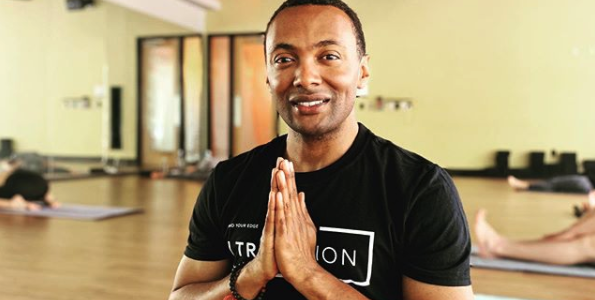How a Black Psychiatrist Deals with Depression and Racism

Before starting medical school, I felt like I had hit rock bottom, and late one night, after my family was asleep, I got in my car and drove to a park downtown to walk under the moonlight.
At the time, I didn’t know it, but I was dealing with more than one demon: the assault on my mind that is depression and the assault on my identity that is systemic racism. Black men are often victims of daily discrimination, a social determinant of mental health that is directly linked with depression.
Over time, racism plants seeds of self-doubt and shame that blossom into loneliness, isolation, and hopelessness. This creates a susceptibility to depression, and only one in three African-Americans in the United States who would benefit from mental-health care receives it. Take a second and think about what that means. Black men are dying from the psychological impacts of racism.
African-Americans make up 13 percent of the United States population, yet only about 5 percent of physicians are Black. Of the more than 41,000 psychiatrists in America, only about 1,800 are Black. This makes it difficult for Black men to find a doctor they believe understands their background and cultural experience.
It took me a long time to mention how I was feeling
I hid my depression for as long as I could, because I did not want to be perceived as weak, especially in an environment that expects people who look like me to fail. As the sun rose that morning, I returned home, finding hope only in the possibility of a better tomorrow, which allowed me to listen to my family’s plea to get help. I met with a psychiatrist and a therapist, but like many Black men, I was wary about medication, and I did not give treatment a fair chance.
I got better by moving my body, discovering a passion for yoga, and connecting with my purpose through faith, which helped me understand that I am here for a reason. Now, as an integrative psychiatrist, I help patients find hope with a personal appreciation that medications are useful but are only part of the solution. I prescribe exercise and meditation as well as talk therapy and meds.
A white coat isn't armor against racism
Despite overcoming depression, the effects of systemic racism hang over me. When I was growing up, my father would say, “They’re going to look at your shoes first, so make sure your shoes are nice. Iron your shirt; wear a belt. You always have to present yourself well, son.” I quickly learned, however, that even a long white coat was not protective against racism in its various shades. In medical education, sometimes racism is less obvious—a senior doctor telling white students to “have a good weekend” and Black students to “stay out of trouble.” Or the perpetual requests to show identification, whether you are sitting in a library or on a park bench, a reminder that, despite your intellect, you are still an outsider.
My first year as a young doctor, I walked into the psychiatric unit to start my day when a patient with severe mental illness greeted me with “Where’s my doctor? You’re just a n!gg*r.” It was the first of many comments that I would eventually learn to repress because I had taken an oath to help my patients. Sometimes I would stand in stillness, biting my lip, and other times I would just walk away, conflicted by duty, humiliation, and pride. Despite the environment, I always showed up the next day attempting to look beyond the disgusting words, but I still questioned whether they were a product of a mental illness or unabashed hatred.
I am aware that many Black men endure so much more. I am a young man, a millennial, who has had to come to terms with the fact that the civil-rights movement did not eradicate racism and that the election of an African-American president did not carry us into a post-racial society. My journey has allowed me to graduate from medical school, get married, travel the world, and overcome depression rather than become a victim of it. This makes my experience one of a Black man with privilege. I have never been a victim of police brutality, nor have I been on the receiving end of a racial slur from a colleague.
Black men try not to dwell on these experiences, and many of us try to move beyond race (because that’s how others define us) without losing our identity in the process. As a Black psychiatrist, I understand that at times my place in medicine will be questioned by some because of the color of my skin. And as a man who has danced with the devil that is depression and overcome it, I am aware that systemic racism doesn’t have to determine my destiny.
I am hopeful that we use this time as an opportunity to listen to each other and to learn about one another’s unique experiences so that we can establish deep and meaningful trust. This is to bridge gaps in understanding and to create a better world for ourselves and future generations.
You Might Also Like